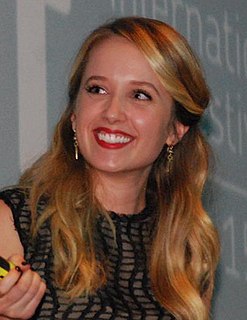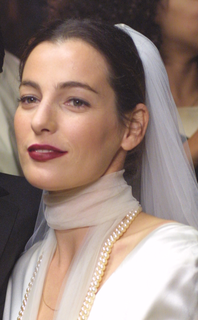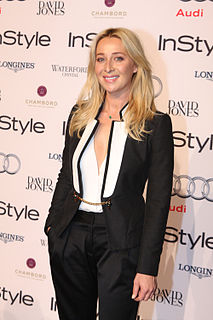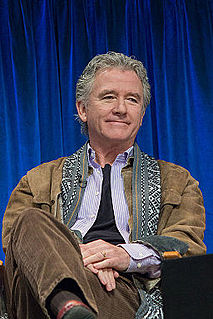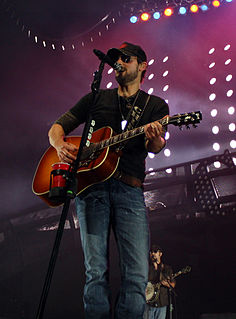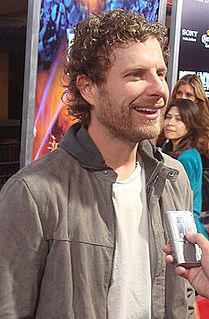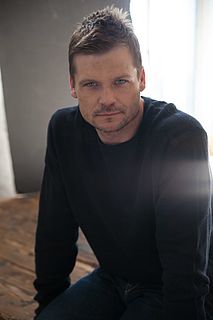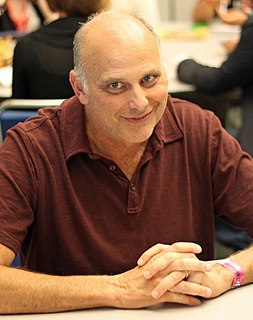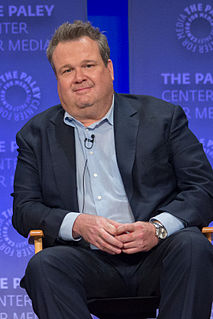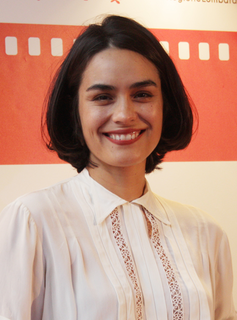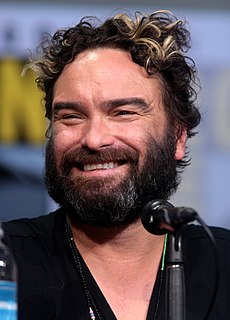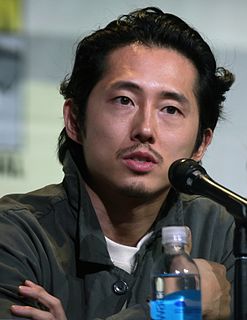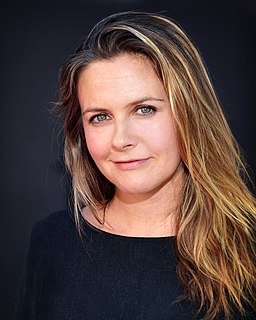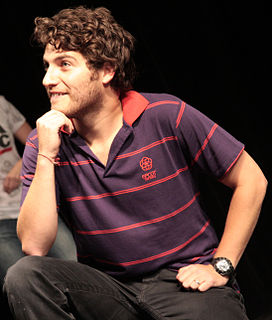A Quote by Megan Park
It's kind of interesting when you sign on to a show because you're basically signing on to play a character because you only really see the first episode of the show.
Related Quotes
I did an episode on the TV show 'Awake,' and I thought, 'Wow, that's really hard.' To do that so fast and to do that, if it's very successful, for nine months out of the year, for a bunch of good years, that's challenging. But, it was interesting. It's a good show. You'd have to have a very good character, I guess.
My first job was a show called The Others. I had, like, three lines. Julianne Nicholson was in it, and Gabriel [Macht]. I remember Gabriel wasn't there the day I was, but he sent a note, because he went to Carnegie Mellon as well, so we knew each other a little bit through that, and he was so sweet and generous. It was meant to be a recurring role that would evolve on the show, but the show only lasted a little while and I ended up only doing that one episode.
The last episode of Dallas was in '1991.' Unfortunately, it was a terrible episode to end the show on: it was a sort of 'It's a Wonderful Life' with Larry as the Jimmy Stewart character. In that episode, I was an ineffectual-schlep kind of brother, who got divorced three or four times and was a Las Vegas reject.
I'd still stand in line all day to get into an AC/DC show, because that was the one show when I was younger that kind of changed my life. Because it was a little wrong. I think I was 14 or 15, first concert without the parents, you know, and they were all worried because we were going to an AC/DC show, and it was an amphitheater.
It's a strange thing to have a successful television show because if it's too interesting... people don't really pay attention when they watch TV. It has to be good, but not so interesting that you really have to pay attention because people multitask. So, if a show demands your entire attention, it has a tough time making it.
All I ever wanted to do was get a great job on a TV show. When I read 'Modern Family' and started looking at what was available - I obviously couldn't play Gloria; I couldn't play Claire. When I saw the character of Cam, I was like, 'I have to have a shot at this,' because I thought it was a character that would be really fun to play.
I know a lot of people who say, "I reluctantly watched the first episode because I don't really like zombies and that stuff, but I was pleasantly surprised by the characters and the drama of it all." I think that's what keeps people coming back and brings new watchers to the show. What the show does is cross many, many different viewerships.
The risk is only in the outcome. You're going on a journey. You're going somewhere to play. And at that time, it felt right to spend that 11 or 12 days exploring this kind of role because it was so different and so challenging for me. It was really exciting to be able to show people, "Look, this is very different. Isn't it interesting?"
